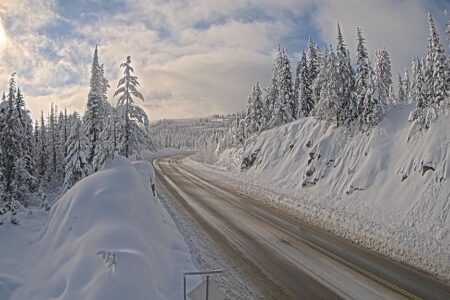Greening Up: The Future Starts Today
“The future starts today, not tomorrow.” – Pope John Paul II
“You may delay, but time will not.” – Benjamin Franklin
“How did it get so late so soon?” – Theodor Seuss Geisel (Dr. Seuss)
Right target, wrong timeline.
The decision by the leaders of the G7 to emphasize “a decarbonization of the global economy over the course of this century” sounds an awful lot like business as usual.
Despite all the warnings over the last four decades by scientists that atmospheric carbon levels are reaching dangerous levels, annual emissions globally have doubled since the 1970s. The proportion of fossil fuels in the global energy use mix is currently the same it was in the 1990s.
Yes, it was a tactical baby step in the right direction to say stop using fossil fuels by 2100 but if the world waits that long to accomplish the task, there will be “serious consequences for all of us”to quote Pope Francis in his encyclical Laudato Si.
Contrast the “the course of this century” words of G7 leaders with those of the Pope: “Climate change is a global problem with grave implications: environmental, social, economic, political and for the distribution of goods,” he wrote. “It represents one of the principal challenges facing humanity in our day.”
Sounds to me like Pope Francis is more up to date on his science reading than our politicians are.
A paper authored by Christophe McGlade and Paul Ekins in January found that 82% of coal reserves, 49% of gas reserves and 33% of oil reserves must be left in the ground in order to prevent dangerous climate change of more than two degrees C.
The non-profit Carbon Tracker did the math in 2011 and determined the world had used over a third of its 50-year carbon budget of 886 GtCO2, leaving 565 GtCO2. Its report Unburnable Carbon found all of the proven reserves owned by private and public companies and governments were equivalent to 2,795 GtCO2,therefore only 20% of the total reserves could be burned unabated, leaving up to 80% of assets technically unburnable.
But the heads of state of Canada, Japan, United States, Germany, United Kingdom, France and Italy have basically said it is okay to use fossil fuels as long as you stop by the year 2100.
Weak international political response
Imagine if some time in the past, these same nations had said we’ll give the world 85 years to end slavery, to stop child labour, to give women and First Nations’ people the right to vote, to allow same sex marriage. Revolution in the streets might not be a sufficient response.
The unfolding climate change tragedy has been recognized for more than 35 years and our leaders have been extremely slow to address it. Even the Pope called them out, saying bluntly: “It is remarkable how weak international political responses have been.”
It gives me no pleasure to state that my country, Canada, has been recognized by other countries as one of the most persistent laggards on climate policy. And don’t tell me Stephen Harper has had an epiphany by signing the G7 communiqué.
As Geoff Dembicki wrote recently in The Tyee, our Prime Minister has mostly ignored the issue completely deeming climate action harmful to a healthy economy.
Stephen Harper’s “Conservative government passed laws to accelerate the growth of Canada’s oil and gas industry, while pledging carbon regulations that never came. He pulled Canada from the Kyoto Protocol, muzzled federal scientists and cut funding to their research, strong-armed the U.S. on bitumen pipelines and set climate targets he had no clear intention of meeting,” writes Dembicki.
Canada’s new climate action plan is pitiful
Not long ago, my country finally submitted its new climate action plan to the United Nations. I wish that statement made me happy.
Instead of focusing on the huge challenge we face just to reduce greenhouse gas emissions economy-wide by 30% below 2005 levels by 2030, the 4-page document plays with numbers to make readers think our nation has actually accomplished something.
My federal government says we only create 1.6% of the world’s CO2, ignoring the fact the UN calculated that in 2012 our emissions from fuel combustion alone ranked number eight in the world and our per capita emissions ranked 14th.
The Climate Change Performance Index 2015ranks Canada 58th out of 61 countries, ahead of only Kazakhstan, Australia, and Saudi Arabia. The reports states that in Canada “nothing has changed and nothing is going forward at state level. Canada is about to miss its 2020 emissions reduction target by about 20% and the only effective policies in place are provincial initiatives.”
On a per capita basis – both presently and historically – my country is among the world’s top greenhouse gas emitters, particularly of carbon dioxide. We Canadians are therefore as responsible as anyone else on Earth for human-induced global warming. To argue that as a nation our emissions are only less than 2% of the global total is misleading and essentially a form of denial.
We are told of the vehicle emission standards enacted in the transportation sector (responsible for about 28% of Canada’s emissions) but they put only a dent in emissions that the UN says have risen 33.3% since 1990.
Government plays up investing more than $10 billion since 2006 in green infrastructure, energy efficiency, clean energy technologies, cleaner fuels and smarter grids. It ignores International Monetary Fund estimates that energy subsidies in Canada top an incredible $34 billion each year in direct support to producers and uncollected tax on externalized costs like traffic accidents, carbon emissions, air pollution and road congestion.
Sir David King, currently the UK’s climate change envoy, and six other prominent British scientists, businessmen and civil servants say $150 billion is needed in research and development spendingon clean energy to save the world from climate change.
Apollo-type R&D program needed
They want large countries to spend an average of 0.02% of gross domestic producta year for the next decade to encourage the technical breakthroughs needed to make renewable electricity cheaper than coal by 2025 in an initiative modelled on the US Apollo space program.
Lord Richard Layard, an economist at the London School of Economics and member of the Apollo group, said “it’s almost inconceivable that we’re only spending two percent of R&D on the world’s biggest technological problem, but that’s how it is” despite compelling evidence to suggest it would quickly pay for itself through lower future energy and health costs.
No mention is made in Canada’s new climate plan of the 2012 axing of the popular ecoENERGY Retrofit program that provided miniscule $5,000 grants to help homeowners make their homes more energy-efficient and reduce their carbon emissions. This is a program that should have been extended to allow the almost 6 million Canadian homes built before 1996 to become net-zero energy, creating an employment and economic windfall.
As a signatory to the Cancun Agreements and the Copenhagen Accord, the Harper government endorsed the scientifically agreed two degree Celsius tipping point as our global warming limit, and with it committed to reducing our greenhouse gas emissions by 17% from 2005 levels by 2020. It is therefore puzzling our government gives no clue about curtailing emissions from the tar sands which a government report (page 86) says could drive a 38% increase in released CO2 within 15 years if the anticipated increased production is realized in the absence of technology improvements.
Environment Canada reported in 2014 (page 18) that emissions from tar sands have already increased by 79% from 2005 to 61 MtCO2e in 2012, to represent 9% of Canada’s total emissions. By 2020, the department says emissions from tar sands will be even more significant, reaching 103 MtCO2e, or 14% of Canada’s total emissions.
Some emissions under-reported
Even worse is the fact my country may be under-reporting its emissions. An investigation in 2013 found that Canada’s reported emissions from its natural gas sector, the world’s third largest, could be missing as much as 212Mt in 2011 alone.
The tar sands – which Prime Minister Stephen Harper hoped would turn Canada into an energy superpower – are part of worldwide stranded assets that scientists and the Carbon Tracker Initiative agree need to remain in the ground if the world is to have a chance of staying below the agreed two degree threshold.
Al Gore estimates $7 trillion of these reserves are on the books of public multinationals while $14 trillion are owned by sovereign states. The former US Vice President warns valuations for carbon reserves are “even more absurd” than the thinking that preceded the sub-prime mortgage crash in 2008.
A growing number of institutions and investment companies – including Oxford University, Oslo city council, Stanford University, HSBC, the Rockefeller Brothers Fundand the Church of England– have confirmed they will divest from coal and tar sands companies. These groups understand the full scale of the ‘carbon bubble’ risk some leading investors fear the economy is being exposed to.
All of which begs the question of what action is Canada going to take regarding its tar sands assets? How much more evidence does our government need before it institutes a carbon tax that at least recovers the true costs to society of burning carbon based fuels?
What about tar sands emissions?
Swedish climate negotiators quizzed Canada in March through a UN portal asking: “Could Canada please elaborate on envisaged policies for reducing emissions from oil sands extraction?”
Canadians and the world are waiting for the answer.
My federal government and several provinces have hitched their economic wagons largely to petroleum, natural gas and coal development/exports. In short, the nation’s economic future is tied, as a matter of deliberate policy, to the country becoming a major exporter of potentially catastrophic climate disruption.
My government’s Intended Nationally Determined Contribution (INDC) submitted to the United Nations Framework Convention on Climate Change Secretariat could have outlined the policies required to ensure our children and future generations don’t have to live in an overheated world.
Climate Action Tracker reports Canada’s INDC is “inadequate” and “equivalent to a reduction of 2% below 1990 industrial GHG emissions levels”.
Even the Conference Board of Canada says my country “is one of the world’s largest per capita GHG emitters. Canada ranks 15th out of 17 OECD countries on GHG emissions per capita and scores a “D” grade.In 2010, Canada’s GHG emissions were 20.3 tonnes per capita, significantly higher than the 17-country average of 12.5 tonnes per capita. Canada’s per capita GHG emissions were nearly three times greater than Switzerland’s, the top performer.”
The conference board goes on to state that one of the main reasons for the high per capita emissions has been the growth in exports of petroleum, natural gas, and forest products. “These commodities are exported, but the GHG emissions resulting from their production are not,” it says. “Still, there is significant room for Canada to cut GHG emissions by increasing energy efficiency and using lower-emitting technologies.”
Taxpayers subsidize climate change
We, the taxpayers, are subsidizing climate change through energy subsidies. Allowing corporations and national governments to escape paying the full costs of exposing the Earth to the risks of climate disruption is nothing less than planetary socialism, something even the World Bank has realized.
The Guardian reports that John Podesta – a trusted advisor to both Barack Obama and Hillary Clinton – believes Canada must do more to compensate for its exploitation of the tar sands ahead of a critical December conference in Paris aimed at reaching an international agreement to fight climate change.
“I think that there is a CO2 premium on oil that is coming out of the oil sands and I think that has to be offset through other policies that they need to implement, or else that is a strategy that is likely to result in excessive emissions,” Podesta said.
Environment Minister Leona Agglukaq said the detailed target is “fair and ambitious” but I and many other Canadians think it is pitiful and unachievable without a nationally implemented carbon fee and dividend and strong policies that move our country toward a zero carbon economy.
My country can do better – immensely better. Pope Francis in Rome wants us to shepherd the world to a healthier future. How long are we going to wait to elect Canadian politicians willing and able to do that?
Michael Jessen is a Nelson-based sustainability consultant and a member of the Citizens’ Climate Lobby. He can be reached by email at zerowaste@shaw.ca
























